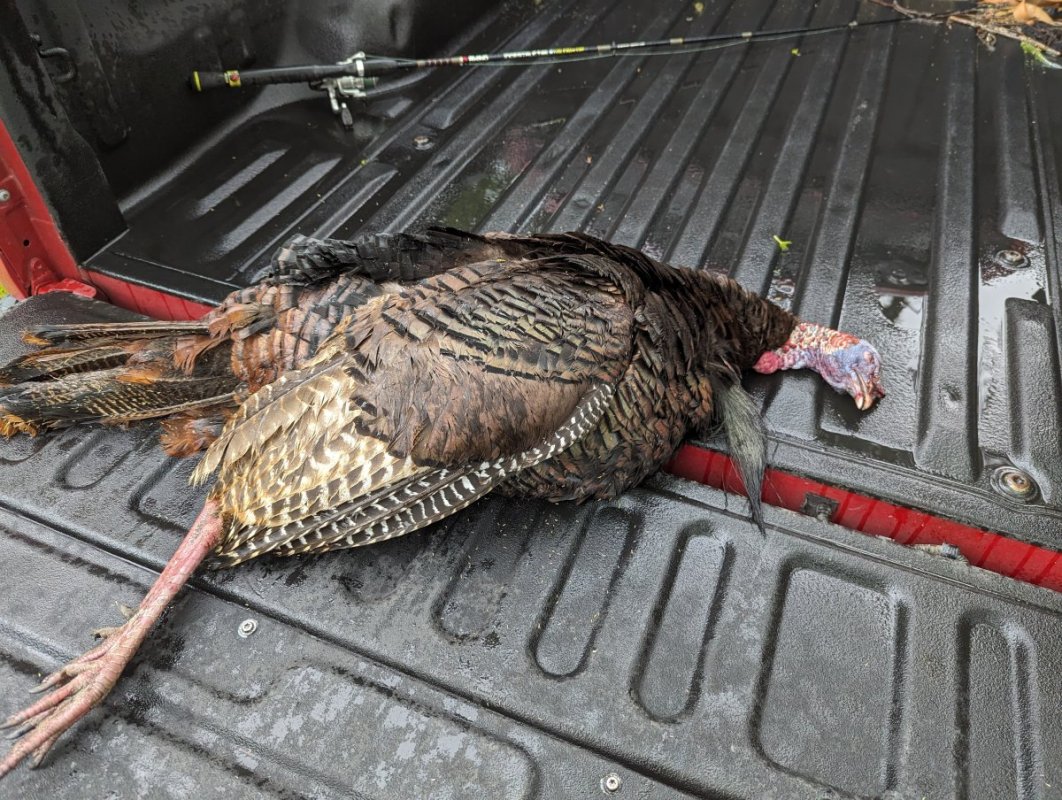yes the season would coincide with deer season.. I would suggest a popup or good ground blind, but I will say I have had them walk all around me while I was in a tree.. Should be allowed to shot them with your deer rifle too, just don't hit the breast..lolWould you have to wear hunter orange?Sounds like a safety issue to me.
Last edited:




